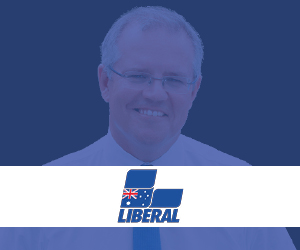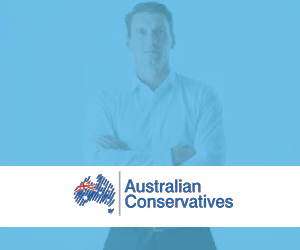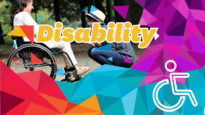Women
Domestic and family violence, abortion and female representation in Parliament
Key Issues
Here are some of the key issues for women set to make an appearance in the lead up to election day.
Abortion services: Abortion has generally been regulated by the states and territories, with little federal intervention. It means there are differing laws on abortion around the country. Queensland law legalising abortion came into effect from December 2018, allowing abortion up to 22 weeks, and abortion after 22 weeks with the consent of two medical practitioners. NSW is now the only state where abortion is still a criminal offence, punishable by jail term (though case law permits medical practitioners to perform abortions on physical, mental health, economic or “social stress” grounds). In South Australia, abortion is still punishable with a jail sentence, but statute amendments allow abortion in certain circumstances. Despite the state-focus, Labor have elevated abortion to a federal issue by tying federal health funding to the provision of abortions in public hospitals (see Labor policy below). Estimates suggest that a quarter to a third of Australian women will choose to have an abortion at some point in their lives.
Domestic violence: Since the age of 15, one in six women in Australia experiences physical or sexual violence by a partner, according to data by the Australian Bureau of Statistics. While domestic violence is a criminal offence regulated under state law, the federal Coalition Government created a National Plan to Reduce Violence against Women and their Children, in partnership with state and territory governments.
Representation: Female representation in government has become a national talking point, with only 31 per cent of Australian federal parliamentarians being female, and Australia ranking at 50th in the world for female representation.
Party Platforms

Female representation: Women make up 22 per cent of Liberals in Federal Parliament. For the Nationals, women make up 14 per cent. The Liberal Party does not have a target for female representation, and is unlikely to introduce a quota system. The Liberal Party has seen several women MPs quit politics or leave the party in the lead up to the federal election (Julie Bishop, Kelly O’Dwyer and Ann Sudmalis will not run at the next election while Julia Banks has become an Independent).
Abortion: The Liberal Party has chosen not to react to Labor’s move to introduce abortion services to public hospitals. Questioned by the media in March, Scott Morrison said abortion services were “rightly dealt with by the states and territories”.
Domestic violence: The Liberal Party says it has invested “over $300 million on programs that directly support women and children who are the victims of, or at risk of, domestic violence.” It also says it is introducing new funding for frontline services (police, health workers etc) to recognise DV signs and giving priority to women and children experiencing domestic and family violence in its National Housing and Homelessness Agreement (see more on that agreement, here).

Female representation: Labor has been setting targets for women MPs since 1994 (first with a quota of 30 per cent, and then 40 and then a target of 50 per cent instituted in 2015). According to the Labor MP Linda Burney, Labor expects to meet its 50 per cent target of female representation in Federal Parliament after the next Federal election.
Abortion: Under a Labor government, Tanya Plibersek announced that public hospitals would be required to offer termination services as part of their Commonwealth funding arrangement. Plibersek said Labor would seek to have the NSW Government decriminalise abortion so public hospitals in that state would be able to provide the service and would build an abortion clinic in Tasmania (there is currently no local abortion facilities in the state, though the procedure has been legal since 2013).
Domestic violence: Labor announced in March 2019 $60 million to offer approx. 20,000 support packages for families rebuilding their lives after domestic and family violence. Applicants for the packages work with a case worker on a safety plan with the goal to help prevent victims from believing returning to a potentially violent situation is their only option. In Victoria, a similar package has been implemented, with grants going towards things like rent or bond payments, school uniforms, overdue utility bills etc.

Female representation: 50 per cent of the Greens Federal Parliamentarians (Greens have 10 Federal MPs in total) are women.
Abortion: The Greens party platform indicates their belief that abortion should be “safe, accessible, affordable” and wants to invest $15 million over 4 years to improve access. The Greens say they will work to decriminalise abortion in NSW and remove criminal provisions where they still exist in SA and WA. It says “abortion should be provided by public hospitals in every State and Territory.”
Domestic violence: The Greens are committed to tackling domestic violence, and will fight for extra funding for front line and specialist services. In a 2016 policy document that has been updated in 2018, the Greens have a plan to “radically boost funding by investing $2.2 billion over four years” including the funding of a national body for specialist DV services.

Female representation: 25 per cent (3 of 12) of Australian Conservatives Senate candidates are female.
Abortion: Senator Cory Bernardi has described abortion as an “abhorrent form of birth control” and says he considers anyone who supports it as “pro-death”, in a book titled The Conservative Revolution. Senator Bernardi has introduced several motions to the Senate opposing abortion.
Domestic violence: Cory Bernardi told Sky News in March 2019 that the Government’s announcement for more domestic violence funding won’t solve the problem, advocating instead for harsher penalties for perpetrators.
Christian Commentary
On abortion
The Australian Christian Lobby have called Labor’s abortion funding plan “incredibly concerning”. ACL’s QLD director Wendy Francis warned, “Not only does this policy mean taxpayers will be footing the bill for the majority of abortions in Australia, but it will only serve to dramatically increase the pressure on already vulnerable women.” In a statement, ACL said “it appears that voters who believe in the inherent dignity and value of life will have a clear choice as Labor advance unfettered abortion.”
However, Queensland Presbyterian minister and blogger Nathan Campbell(at St. Eutychus) warns Christians not to be wedged by abortion.
“Politically, abortion is actually regulated by the states, so the Federal Labor party raising it as a policy issue in a federal election is an interesting move, and one that seems more about heat than light — more about turning up the heat on their ‘regressive’ opponents by painting themselves as ‘progressive’ than about a policy platform of substance. In short, it’s a classic ‘wedge politics’ move, and the temptation for us as Christians — not simply the challenge for politically conservative people who may oppose abortion on more than just religious convictions — is to not be wedged. Wedge politics needs a villain. A bad guy to point to to say ‘don’t be like these dinosaurs’ — and the classic Christian response to discussion around abortion plays straight into this divisive political strategy. The Labor Party’s number crunchers have obviously decided that the social capital of single-issue voting Christians (typically conservative theologically and politically) is currently so low that not only is there no political loss for wedging us and painting us as the villains, there is a political gain in the wider electorate for doing so. Our conservative Christian Prime Minister was savvy enough to refuse to be wedged on this issue, the question is, can the rest of us respond with similar wisdom.
“I can totally understand single issue voting on abortion. I can understand wanting to belt out a hasty statement or letter to paint the proponents of the law change as evil… but I’m not sure it serves the political cause any more than it serves the mission of the church in proclaiming and living as an alternative kingdom following the true king. I’m not sure it even brings our neighbours closer to truth and morality in a way that restrains evil (which is a more classically reformed, Christendom, position than the political theology I’m advocating). It’s possible that jumping into what is clearly a wedge politics style trap is the right and noble thing to do anyway, but I’m not sure it’s being ‘as wise as serpents and innocent as doves’ in the face of a wolf like culture.” Read the full blog post here.
Baptist commentator Mike Frost also warned Christian voters of “single-issue voting” when it came to abortion.
“Why is it so hard to find any political representation that is as equally opposed to war and poverty, racism and capital punishment, as they are to euthanasia and abortion?
And in saying that, I am not looking for a party that is merely anti-abortion. A pro-life stance must include a commitment to end the cycle of poverty for women, as well as better support for parents of children with disabilities, comprehensive reproductive education, easy access to affordable contraception, better adoption policies, etc.
“To go further, I’m looking for political representation with a pro-life platform that includes being pro-Aboriginal, pro-refugee, pro-Muslim, pro-the poor, pro-planet.”
Sydney Anglicans released a statement following the ALP’s abortion funding announcement in March 2019 with Archbishop Glenn Davies saying, “The rights of the unborn child are completely obscured by this policy.
“We need to care for and support women who fall pregnant and do not wish to keep their child for whatever reason. But we must do that without jeopardising the life of the child.
“A pregnancy is a life given by God. A pregnancy that is unwanted represents not a health problem but a responsibility for the whole society. Mandating public funds to end the lives of unborn children is merciless, unjustified and simply wrong.
“We need policies which support the lives of children to be enhanced and nurtured so as to enrich our society.”
On domestic violence
Christian social justice group Common Grace has a whole platform called Safer to help the church come to terms with and respond to domestic and family violence in their communities. The group has advocated for increased funding for critical services including crisis accommodation, legal services and affordable housing for those experiencing domestic and family violence.
“Common Grace believes that governments have a major role to play and we will be doing more in the coming year to call the Australian government to urgent, well-resourced action, partnering with other campaigns.
“Among the number of planned actions, one of the first priorities of this campaign is to assist the Christian churches across Australia to ‘get our house in order’. Domestic violence has long been an issue that denominations and faith communities have not addressed well and Common Grace is hoping to support the Australian church in repentance, as well as help faith communities reflect on the issues and support them to come up with strategies and practical solutions.”











